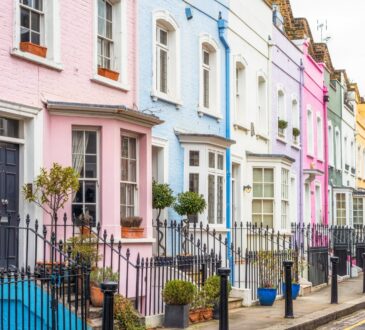
Florida lawmakers began work on what may become a ballot measure to overhaul property taxes.

Florida GOP Chair Evan Power calls for Jacksonville property tax cut
Florida Republican Party Chairman Evan Power says if Jacksonville can cut its property tax rate, so can other Florida cities
- Florida lawmakers are beginning an effort to overhaul the state’s complex property tax system, which may lead to a ballot measure in 2026.
- Seniors who own their homes without a mortgage are a key focus, as they are more sensitive to rising property tax bills.
- Also, the “Save our Homes” cap creates tax disparities between longtime homeowners and new buyers, particularly in high-cost areas like South Florida.
An effort by lawmakers that is expected to end with a ballot measure next year asking Florida voters to overhaul property taxes began with point-by-point lessons on how the state’s complex system works.
A House panel got four hours of explanation from state analysts Sept. 22 on everything from how the state’s “truth in millage” (TRIM) requirements are calculated to a review of some of the more than two-dozen property tax exemptions now available to Floridians.
“I think we’re now beginning to recognize how complex the situation is and why it requires looking at every facet before making a decision,” said Rep. Vicki Lopez, R-Miami, co-chair of the Select Committee on Property Taxes.
Analysts, though, hinted at what may be at least one of the driving reasons behind why Gov. Ron DeSantis and the House have become so focused on easing the property tax burden by crafting a proposed November 2026 constitutional amendment.
Almost two-thirds of Florida seniors who own their homes currently have no mortgages, economist Amy Baker pointed out. They are “more attentive” to a rising tax bill than homeowners whose taxes are paid through their bank mortgage escrow account.
“The shock value is much greater” for these seniors, said Baker, coordinator of the state’s Economic and Demographic Research office.
Property taxes vary widely across state, in cost and impact
While seniors, among Florida’s most reliable voting blocs, may be stunned by the tax checks they write, the committee also heard in its first of two days of hearings this week about how property levies vary across the state, both in cost and impact.
The proposed recasting of property taxes has gotten the attention of county schools, along with city and county governments, which all draw a huge share of their revenue from these taxes.
Similarly, government service organizations are cautious about talk of change – with police and fire services the biggest cost for most governments. Representatives of the Florida League of Cities and Association of Counties are among those expected to testify on Sept. 23.
The Florida Senate hasn’t weighed into property taxes yet. But the House panel is expected to come up with recommendations for lawmakers to consider when the 2026 session begins in January.
Baker and Florida Revenue Department officials rolled out data showing that 47% of the 10.5 million land parcels are covered by the state’s two $25,000 homestead exemptions, the tax break signaling that a parcel is someone’s prime residence.
In rural counties, property taxes don’t add up
Smaller, more rural counties already draw such modest dollars from property tax collections that they rely overwhelming on the state to finance public schools. Union County, for example, gets 92% of its school funding from the state – with property taxes providing only 8%.
In larger, urban counties, there’s more of a balance between state and local school dollars, analysts said.
But many of these urban counties are dealing with another property tax factor. The state’s Save our Homes provision, which caps annual increases of assessed value at 3%, is a benefit that helps longtime homeowners, many of them older residents.
Save our Homes, though, doesn’t immediately help first-time homebuyers. And it can create vast tax disparities even in neighborhoods because of differences in assessed values.
In South Florida, where home prices are highest, those with Save our Homes are drawing a benefit that’s three times the state’s average, data showed.
The other committee co-chair – Rep. Toby Overdorf, R-Palm City – acknowledged that addressing Florida’s property tax system can be daunting. But removing some of the complexity should be a goal: “Why can’t we make this a little bit more simple for the Florida taxpayer?”
John Kennedy is a reporter in the USA TODAY Network’s Florida Capital Bureau. He can be reached at jkennedy2@gannett.com, or on X at @JKennedyReport.




